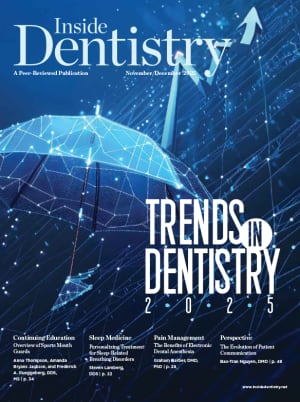Organizations From Across the Country Will Work to Address Barriers to Oral Health Care for Those With Disabilities
CareQuest Institute for Oral Health awarded $1.25 million in funding to 10 organizations selected for their Disability Inclusion and Justice in Oral Health Request for Proposals (RFP). Each organization received $125,000 to fulfill work to address systemic barriers to oral health — including access to oral health — for people with disabilities.
“As we work to build true systemic change, we have to listen and learn from those who have been negatively impacted by the current oral health system, with a specific focus on historically marginalized and under-resourced communities,” said Trenae Simpson, Director of Grants and Programs at CareQuest Institute. “These insights shape our philanthropic strategy and our intentional investments in community-driven projects that amplify these voices and solutions. The organizations that CareQuest Institute has selected for this funding are working in their communities, clinical practices, and academia to address and correct years of institutional discrimination and access barriers for those with disabilities—we are proud to support this work.”
CareQuest Institute provided grants to the following organizations:
• American Academy of Pediatric Dentistry (AAPD) Foundation aims to improve the dental delivery system to better serve people with disabilities as they transition from childhood to adulthood.
• Alameda Health System Foundation plans to develop a dedicated Augmentative and Alternative Communication (AAC) mobile application that draws on the input from patients with Intellectual and Developmental Disabilities, their family members/caregivers, and dental professionals who care for this patient community, specifically through focus group interviews and beta testing among this community.
• New Mexico Dental Association Foundation plans to collaborate with the University of New Mexico Department of Dental Medicine and the New Mexico Dental Association to develop a comprehensive statewide report with recommendations aimed at addressing the oral health needs of individuals with disabilities.
• The American Institute of Dental Public Health will partner with Coalition of Texans with Disabilities to create a 5-part toolkit for advocates to expand access to care for people with disabilities in Medicaid, deliver a series of trainings and workshops for advocates around these legislative levers, and create a policy and bill bank for advocates to reference.
• The Arc of the United States plans to launch the Dental for All project to promote outreach in communities to address disparities in dental outcomes for people with disabilities.
• UCLA School of Dentistry plans to expand clinic operations to focus on developing a more inclusive patient-centered dental home for people with disabilities.
• University of Cincinnati Foundation will pilot a dental program through the Timothy Freeman, MD, Center for Intellectual and Developmental Disabilities at University of Cincinnati (UC) Health. A Disability Dental Focus Group will be formed to inform the creation of the dental program and provide feedback.
• University of Colorado Denver (UCD) will advocate for administrative policy in reimbursement for care for people with disabilities, maintain a coalition of disability partners to maintain the work, provide training for dental students, and advocate for state government funding to develop a new center at UCD for people with disabilities, and implement a patient Navigator.
• University of Florida Foundation will create a mobile program to provide dental services for people with disabilities. The program will include pre-visit telehealth screens, a psychologist as part of the team, and minimally invasive care when appropriate.
• University of Pennsylvania School of Dental Medicine proposes to build a network (Community Advocates for Resource Enhancements) and a coalition in Philadelphia of organizations and individuals committed to improving the oral health of people with disabilities. The coalition will complete an assessment, identify and pilot solutions, create resources for families and caregivers of people with disabilities and provide ongoing input for the clinical program.
CareQuest Institute prioritized proposals that reflect the applicant's authentic commitment to meaningfully and consistently engage members of the disability community throughout their proposed project. This definition of engagement goes beyond treatment to nurture environments ripe for community empowerment and justice. Additional details can be found on CareQuest Institute’s Disability Inclusion and Justice in Oral Health Request for Proposals page.
CareQuest Institute for Oral Health Awards $1.25 Million in Grant Funding for Projects Focused on Disability Inclusion and Justice in Oral Health
February 28, 2024
